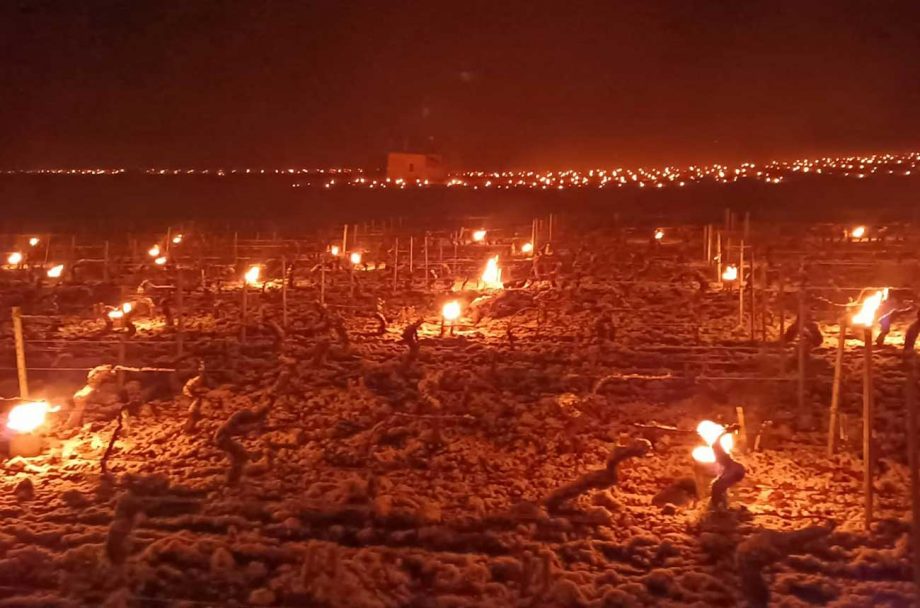Sudden cold snap ravages French wine production
French winegrowers were already struggling to sustain themselves after the pandemic, which reduced the demand for wine due to repetitive lockdowns and the closing of restaurants and bars across the world. Furthermore, the French winemakers had to face the mutually disadvantageous trade war between the US and EU in which import tariffs were imposed on wine. Adding to the misery, French vineyards experienced a violent cold snap at the beginning of April. The cold snap stretched from France to Greece damaged a range of crops at crucial moments in their development, including high-quality grapes used to make wine. The freezing temperatures were witnessed during the warm spring months, which hindered the blossoming of grapes.
It is estimated that more than 80% of the vineyards in France were impacted by frost. The main wine-producing regions like Rhone Valley, Bordeaux, Burgundy, Champagne, and the Loire were victims of the cold snap. The flowers and buds in the vineyards were frozen, and it is expected that the harvest will fall by at least 90%. The damages are expected to be the worst in comparison to the decade. The losses to vineyards were exacerbated by the warm spell immediately after the frost, which resulted in an instant over-ripening of the fruit, making it unsuitable for wine production. Frost damage to French vineyards this month could reduce wine production by nearly a third compared with recent years, and the potential economic losses from the frost damage at 1.5-2 billion euros.

To minimize the damage, paraffin-fuelled heaters were installed in the vineyards to generate heat. Winegrowers and farmers tried everything from candles to small fires. The method seemed to be effective but was expensive and inadequate to counter a very severe frost. Furthermore, the government has pledged to provide around 1 billion euros in aid for agriculture affected by the ice. This includes wine producers' access to a disaster fund to compensate up to 40% of losses not covered by insurance.
Many French wine farmers are blaming global warming for the erratic weather conditions and late frosts. Shorter winters, higher summer temperatures, and faster ripening are changing the character of French wine vintages and are leaving young vines vulnerable to frost damage. The grapes are now being harvested three weeks before the season, and growers are now being forced to postpone the winter pruning of the vines as long as possible to delay the growing season. It is expected that the farmers will be compensated for their losses, but the bigger problem of global warming and erratic weather needs to be solved to get out of the recurring problem.
Sources
Decanter. "Update: €1bn aid for frost-hit French vineyards and farmers."
Financial Times. "April frosts are a bitter blow to Europe's vineyards."
Reuters. "Frost damage could cut French wine output by a third."
